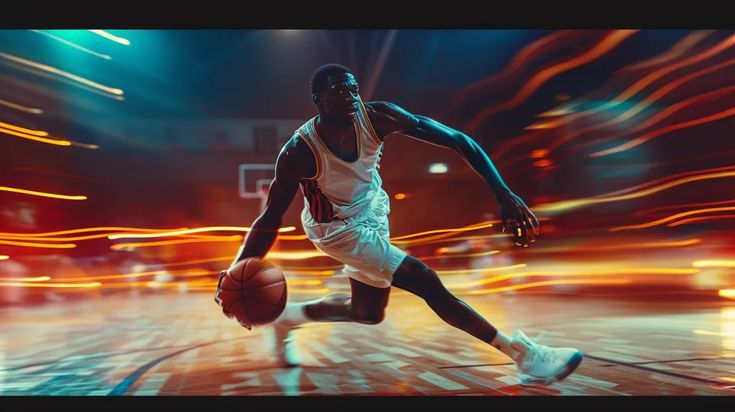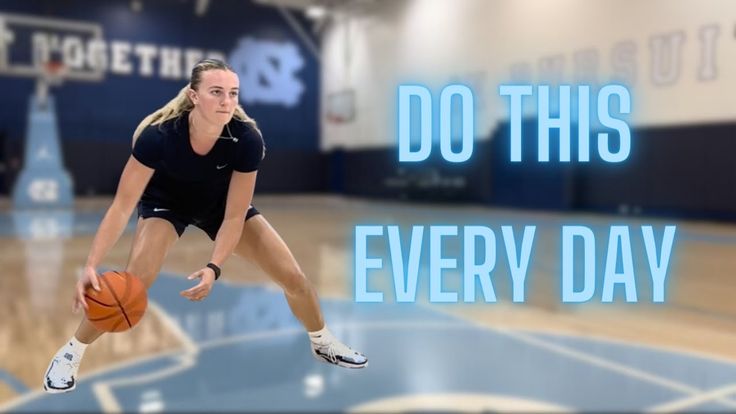Basketball is more than just a game—it’s a test of physical ability, mental strength, and emotional resilience. Whether you’re a beginner or an experienced player, you’ll inevitably face challenges that could hinder your growth. The key to thriving lies in how effectively you confront and overcome these barriers. This guide offers a detailed roadmap to help you break through the most common obstacles and elevate your game, both on and off the court.
Understanding the Common Barriers in Basketball
Before you can conquer the hurdles in your basketball journey, it’s crucial to identify them clearly. Barriers can be physical, psychological, or logistical, and recognizing their impact is the first step toward overcoming them. Let’s explore the most common challenges that players of all levels face.
Physical Limitations and Fitness Levels
One of the most obvious obstacles is your physical condition. Lack of endurance, poor flexibility, or limited strength can drastically affect your performance on the court. Regular conditioning and strength training tailored to basketball can help bridge this gap over time.
Mental and Emotional Challenges
Self-doubt, anxiety, and stress can derail your progress more than any physical setback. Understanding how mental health affects performance is essential. Developing emotional intelligence and coping mechanisms allows players to maintain focus and composure during intense moments.
Lack of Resources or Access to Facilities
Not everyone has access to high-end gyms, training equipment, or even a proper court. Limited resources can feel discouraging, but alternative options like local community centers, school facilities, or even outdoor courts can serve as great starting points.
Mental Strategies to Overcome Challenges
Once you’ve identified your personal barriers, it’s time to shift your mindset. Mental fortitude is the foundation of consistent progress in basketball. Implementing strong psychological strategies will not only help you tackle obstacles but also keep you motivated throughout your journey.
Cultivating a Growth Mindset
A growth mindset allows you to view setbacks as learning opportunities rather than failures. This mental shift empowers you to keep pushing, regardless of how slow or challenging your progress may seem. Believe that skills can be developed through dedication and effort.
Setting SMART Goals for Progress
Specific, Measurable, Achievable, Relevant, and Time-bound goals provide a clear roadmap for success. Instead of vague aspirations like “get better at dribbling,” aim for goals such as “practice dribbling with both hands for 30 minutes daily for the next month.”
Visualization and Mental Rehearsal
Elite athletes often use visualization techniques to mentally prepare for games. Visualizing successful plays and performance under pressure helps condition your brain to respond positively in real situations. This form of mental rehearsal builds confidence and readiness.

Physical Preparation and Conditioning
Your physical fitness is the engine that powers your basketball skills. Building strength, agility, and endurance ensures that you can execute plays effectively and reduce the risk of injuries. A well-conditioned body is a major asset on the court and a critical factor in overcoming physical limitations.
Creating a Personalized Workout Plan
A one-size-fits-all approach doesn’t work in basketball training. Identify your weak areas—whether it’s speed, vertical jump, or stamina—and design a workout plan that targets those specifics. Include a mix of strength training, cardio, agility drills, and flexibility exercises to become a more complete athlete.

Injury Prevention and Recovery Techniques
Ignoring minor injuries or skipping warm-ups can lead to long-term damage. Implement proper warm-up and cool-down routines, and listen to your body. Utilize recovery tools such as foam rollers, compression gear, and rest days to maintain peak condition and reduce downtime from injuries.
Importance of Nutrition and Hydration
What you eat and drink has a direct impact on your performance. Focus on a balanced diet rich in protein, complex carbs, and healthy fats. Stay hydrated before, during, and after games or training sessions. Proper nutrition fuels your body for high-intensity performance and quicker recovery.
Skill Development Techniques
Skill development is the foundation of growth in basketball. Regardless of your current level, there’s always room to refine and expand your skill set. Consistent practice combined with proper guidance accelerates improvement and builds game confidence.
Finding a Qualified Coach or Mentor
Guidance from someone with experience can significantly shorten your learning curve. A coach or mentor not only teaches technical skills but also offers insights into game strategies, positioning, and mental toughness that you can’t get from practicing alone.
Participating in Drills for Specific Skills
Focus your practice time on drills that target core areas such as dribbling, shooting, passing, and defense. Repetitive, focused drills help build muscle memory, enabling you to perform complex skills instinctively during live play.
Watch this essential dribbling drill tutorial to prevent turnovers:
Joining Local Teams or Pick-Up Games
Real-time game experience is invaluable. Join community leagues, school teams, or even informal pick-up games to practice your skills under pressure. Game situations test your decision-making and help you adapt to different playing styles and opponents.

Overcoming Emotional and Psychological Barriers
Even with the right physical skills, emotional blocks can hold you back. Addressing these psychological challenges is crucial to maintaining consistency and performance under stress. Confidence, emotional control, and mental resilience can make the difference between good and great.
Dealing with Performance Anxiety
Nervousness before or during a game is natural, but it shouldn’t paralyze you. Use deep breathing, positive affirmations, and mental routines to calm nerves. Experience and exposure also help reduce anxiety over time.
Handling Criticism and Feedback Constructively
Criticism can feel discouraging, but when viewed constructively, it becomes a powerful growth tool. Learn to differentiate between destructive and helpful feedback, and use the latter to adjust your approach and improve your game.
Building Confidence Through Small Wins
Confidence is built over time. Set yourself up for small, achievable victories—whether it’s making 10 free throws in a row or completing a tough drill. These wins reinforce self-belief and motivate you to aim higher.
Leveraging Support Systems
You don’t have to face basketball challenges alone. Support from others can dramatically improve your morale, skills, and motivation. Whether it’s encouragement, training assistance, or constructive feedback, a reliable support system boosts your journey toward overcoming obstacles.
The Role of Family and Friends
Family and close friends often serve as your first cheering squad. Their emotional support can help you stay positive during rough patches. Whether it’s driving you to practice, attending games, or simply encouraging your passion, their involvement matters more than you think.
Seeking Peer Motivation and Team Support
Your teammates and basketball peers are on similar paths. Bonding with them creates a sense of camaraderie that helps push through tough training sessions and moments of doubt. Positive peer influence motivates consistent effort and growth.

Utilizing School or Community Programs
Don’t overlook structured programs available at schools, rec centers, or local clubs. These platforms offer access to coaches, organized games, and regular practice—providing the consistency and environment needed to sharpen your game.
Time Management and Prioritization
Balancing basketball with other life responsibilities like academics, work, or family commitments can be a struggle. Successful players know how to organize their time, set priorities, and maintain a schedule that allows for both development and personal responsibilities.
Balancing Basketball with Academics/Work
Make use of tools like calendars and time-blocking to allocate dedicated hours for study, work, and practice. Communicate with teachers or supervisors when you have tournaments or long sessions, and always plan ahead to avoid last-minute stress.
Creating a Consistent Practice Schedule
Consistency beats intensity. Rather than sporadic long sessions, aim for shorter but regular practice intervals. A weekly schedule with specific goals helps ensure that your training is effective and integrated into your daily routine.
Using Technology to Improve Performance
In the digital age, athletes have powerful tools at their fingertips. Leveraging technology can optimize your training, track progress, and provide insights that were once only available to professionals. Integrating smart tools into your routine gives you a performance edge.
Apps and Tools for Tracking Progress
Basketball-specific apps can help you monitor shooting accuracy, fitness levels, and workout consistency. Popular apps like HomeCourt, Hudl, or MyFitnessPal offer real-time metrics and analysis to refine your game scientifically.
Booking a Basketball Court: Step-by-Step Guide
Watching Game Footage for Self-Assessment
Recording and reviewing your games or practices helps you identify patterns, mistakes, and areas for improvement. Break down footage with a coach or use slow-motion playback to fine-tune your decision-making and technique.
Staying Consistent and Motivated
Staying consistent is one of the most underrated but powerful ways to overcome barriers in basketball. No matter how motivated you are at the start, long-term success depends on your ability to stay committed, even on days when motivation is low.
Celebrating Milestones and Progress
Recognizing personal milestones boosts morale and helps track growth. Whether it’s hitting a new personal best in free throws or attending every scheduled practice for a month, these small achievements reinforce commitment and build confidence.
Strategies to Avoid Burnout
Overtraining and mental fatigue are real threats. Schedule recovery days, switch up routines to avoid monotony, and ensure you’re training for joy—not just performance. Listen to your body and mind to sustain long-term engagement.
Real-Life Success Stories
Real stories of basketball players who rose above adversity can be a massive source of inspiration. These examples show that regardless of where you start, with enough grit and purpose, you can reach incredible heights.
Profiles of Players Who Overcame Obstacles
Several basketball legends began their journeys under extremely difficult circumstances. Jimmy Butler overcame homelessness as a teenager and went on to become an NBA All-Star. Giannis Antetokounmpo, born into poverty in Greece, worked odd jobs before being drafted and rising to MVP status. These athletes proved that obstacles can be transformed into fuel for greatness through grit, hard work, and belief in oneself.

Lessons Learned from Their Journeys
These players’ experiences show that success is rarely linear. Their determination, adaptability, and faith in long-term progress offer a blueprint for anyone facing similar barriers. The key lesson: resilience combined with action changes lives.
Mistakes to Avoid When Facing Barriers
Even the most driven players can sabotage their progress by falling into common traps. Recognizing and avoiding these mistakes can significantly enhance your ability to overcome challenges.
Ignoring Mental Health
Mental strength is as vital as physical conditioning. Neglecting emotional well-being can lead to stress, lack of motivation, or even quitting. Prioritize rest, self-reflection, and, if needed, talk to a coach or counselor.
Skipping Fundamentals in Training
Without mastering basics like footwork, ball control, and defense, advanced skills won’t hold up under pressure. Fundamentals are the foundation for reliable, high-level performance.
Comparing Yourself to Others Excessively
Every athlete progresses at their own pace. Constant comparison can lead to frustration and self-doubt. Focus on personal improvement and use others’ success as inspiration, not competition.
Long-Term Vision and Personal Growth
Basketball is more than a sport—it’s a lifelong teacher. The obstacles you overcome on the court prepare you to face challenges off it. Embracing a long-term mindset allows you to enjoy the process, grow as a player, and mature as a person.
How Basketball Builds Character
Discipline, accountability, teamwork, and perseverance are just some of the values cultivated through basketball. These traits not only elevate your game but also shape your identity and leadership skills in life’s other arenas.
Translating On-Court Lessons to Life Skills
The patience you practice while mastering a layup, or the humility required to accept defeat gracefully, transfers into everyday resilience. Basketball teaches you to adapt, communicate, and pursue excellence—lessons that extend far beyond the hardwood.
Conclusion
Overcoming barriers in basketball isn’t about avoiding challenges—it’s about learning how to respond to them with focus, strategy, and heart. By identifying your personal obstacles and applying mental, physical, and emotional techniques, you can grow stronger in every aspect of the game. Remember, progress is never linear, but with consistency, support, and belief, your full potential is within reach. Keep playing, keep pushing, and most importantly, keep believing in yourself.

